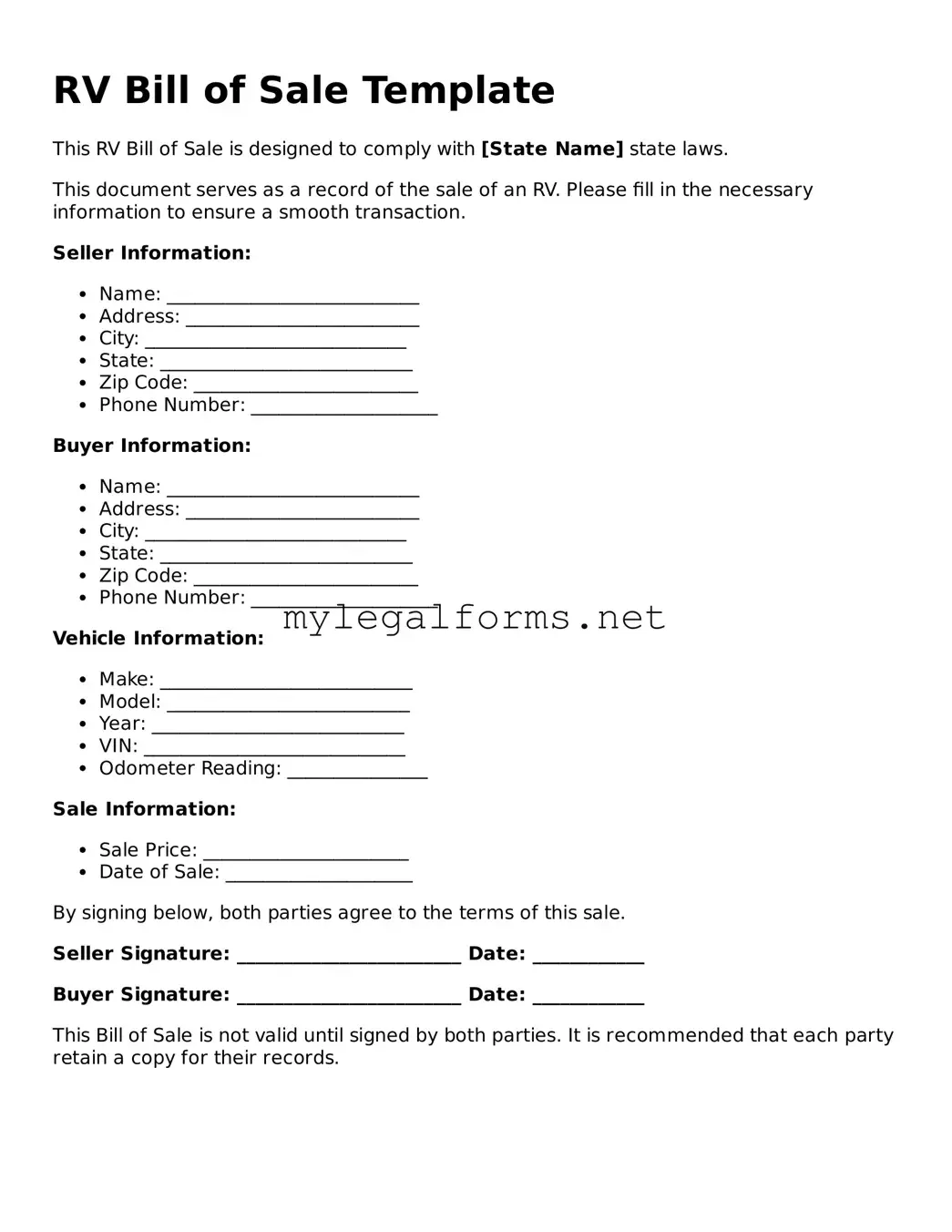Filling out an RV Bill of Sale form can be straightforward, but many people make common mistakes that can lead to complications later. One frequent error is failing to include the correct vehicle identification number (VIN). The VIN is essential for identifying the RV, and any inaccuracies can create problems during registration.
Another common mistake is neglecting to provide complete buyer and seller information. This includes full names, addresses, and contact details. Incomplete information can lead to confusion or disputes about ownership in the future.
Some individuals forget to specify the sale price. Leaving this section blank or writing an ambiguous amount can complicate matters, especially for tax purposes. Always ensure that the sale price is clearly stated to avoid any misunderstandings.
Additionally, many people overlook the need for signatures. Both the buyer and seller must sign the document for it to be valid. Without these signatures, the sale may not be legally recognized, potentially leading to issues down the line.
Another mistake is not dating the form. A date is crucial as it marks when the transaction took place. If a dispute arises later, having a date can help clarify the timeline of ownership transfer.
Omitting the odometer reading is also a frequent oversight. This reading is important for both parties, as it provides a record of the RV's mileage at the time of sale. Failing to include it can lead to questions about the vehicle's condition and value.
Some people mistakenly assume that a Bill of Sale is only necessary for high-value transactions. However, it is advisable to have a Bill of Sale for any RV sale, regardless of price. This document serves as a record of the transaction and can protect both parties.
Another issue arises when individuals do not check for any liens on the RV. If the RV has outstanding loans or liens, these must be resolved before the sale can be completed. Failing to address this can lead to legal complications for the buyer.
People often forget to keep a copy of the completed Bill of Sale. It is essential for both parties to retain a copy for their records. This document can serve as proof of ownership and transaction details in case of future disputes.
Lastly, some individuals do not understand the specific requirements of their state regarding RV sales. Each state may have different regulations about what needs to be included in the Bill of Sale. It is important to research and comply with local laws to ensure the sale is valid.

